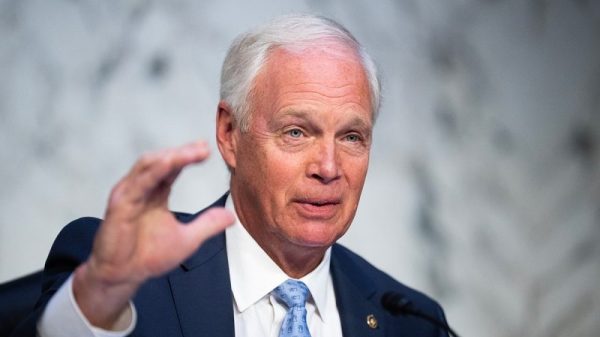When thousands of people hit Israel’s streets to protest against the passage of the first law in the government’s controversial judicial overhaul plan last week, a smaller group of Israelis was celebrating.
Right-leaning Israelis who mostly identify with the country’s more conservative, religious and Jewish nationalist bloc make up much of Israeli Prime Minister Benjamin Netanyahu’s support base, experts say, and they are glad to see him push forward with the overhaul despite the lack of a broader consensus.
Though polls show that most Israelis oppose the government’s plan to weaken the courts, this right-wing minority sees it as a step toward, and not away from, democracy.
Eugene Kontorovich, a law professor and scholar at the conservative Kohelet Policy Forum, is among those who see the overhaul as long overdue.
Kontorovich believes the current judicial system in Israel is flawed, defined by “all checks and no balances” – a phrase echoed by Netanyahu and his supporters when defending the overhaul.
While critics of the judicial plan say it is a threat to Israeli democracy that risks severely curtailing the powers of the only body that has a check on the executive and legislative branches – the Supreme Court – those in Kontorovich’s camp see this very power as problematic.
“There are many checks on the legislative and executive branches, but there are simply no checks on the Supreme Court,” Kontorovich said, without citing examples. He added that the Supreme Court in Israel “wields far more power than in any other democracy.”
The Kohelet Forum, a right-wing think tank which has advocated for what it calls judicial reform in Israel for over a decade, has been accused by protesters of laying the ideological foundations for the government’s far-reaching proposals. Activists have more than once protested outside their offices.
Unlike many democracies, Israel does not have a written constitution. Instead, it relies on 13 Basic Laws, along with court ruling precedents, which were meant to be turned into a constitution one day, though that has not yet happened.
Last week Israel’s parliament passed an amendment to one of those Basic Laws, stripping the Supreme Court of the ability to reject some government decisions on the basis of the “reasonableness” standard. Netanyahu’s far-right coalition pushed the bill through by a narrow margin despite months of mass protests, public criticism from the White House and the opposition boycotting the vote.
Other parts of the overhaul which are yet to be voted on by the Knesset would give the government more control over the appointment of judges and would remove independent legal advisers from government ministries.
“This measure by itself is the most minor, most reasonable, shall we say, measure,” Kontorovich said, asserting that the opposition “was very close to agreeing on this measure if they got certain other guarantees that were unrelated.”
The country is at an inflection point, with more than half of Israelis saying they fear a civil war, according to a survey held in the wake of last week’s vote.
Carried out by Israel’s Channel 13 news outlet, the poll said 54% of respondents thought the judicial overhaul was harming Israel’s security, and that 56% were worried about potential civil war.
“Many of them have been caught in this spiral of fear,” he said.
The prime minster emphasized however that some Israelis do support his judicial plan, including 80,000 current or former military soldiers who oppose other reservists’ refusal to serve as a form of protest.
One resident at the Efrat settlement, in the occupied West Bank, Tommy Lamm said the court had long been “stacked with one direction” and needed to change to include all segments of Israeli society.
Another resident, Ronnie Lottner said “democracy is stronger now” in Israel, and that finally, “a decision has been made by the people and by the people voting in parliament.”
Who are the Israelis supporting the overhaul?
Experts say supporters of the overhaul lie mostly on the more conservative, religious end of the spectrum. While they are a minority in Israel, they have different reasons for backing the judicial plan.
These include unconditional loyalty to Netanyahu and a vehement desire to protect Israel’s Jewish, nationalist identity, along with years-long frustration on the right with Supreme Court decisions and disappointment with former Prime Minister Naftali Bennett’s failed coalition, which analysts say contributed to the rise of today’s hardline government.
Those on the right also typically see the nation as “a family,” Hermann said, and so will typically support Netanyahu – the “father of the family” – despite mass protests against him and his government’s choices.
“You don’t turn your back on the father of the family even if they do things you don’t like,” Hermann said.
Supporters of Netanyahu’s plan also include, according to Rahat, many of Israel’s ultra-Orthodox population, which has been significantly growing in recent years and playing a stronger role in Israeli public life.
“This time, after the election (2022), they got so much power because of this coalition’s very strange combination, that they started to make demands regarding the public sphere, not only in their neighborhoods,” Hermann said, adding that this marked “a point of departure in their relationship with the rest of the Israeli population.”
Rise of the right
Observers of Israeli politics have sounded alarms over the rise of the far-right.
When Netanyahu was re-elected last year, he formed the most right-wing coalition in Israel’s history. His re-election also followed four snap elections in two years, the last of which produced a wide-ranging and ultimately fragile coalition led by Bennett and Yair Lapid.
When the Bennett-Lapid government collapsed, triggering a fifth round of elections, the gap between left and right only widened, Hermann said.
Israeli Jewish voters have also shifted rightward in recent years, according to data published by the Israel Democracy Institue in August, as both the center and the left shrank.
Following backlash from the opposition, however, Netanyahu in a statement attempted to reassure the public, saying that Israeli governments “always respect” court decisions. But it stopped short of saying it would obey them.







































